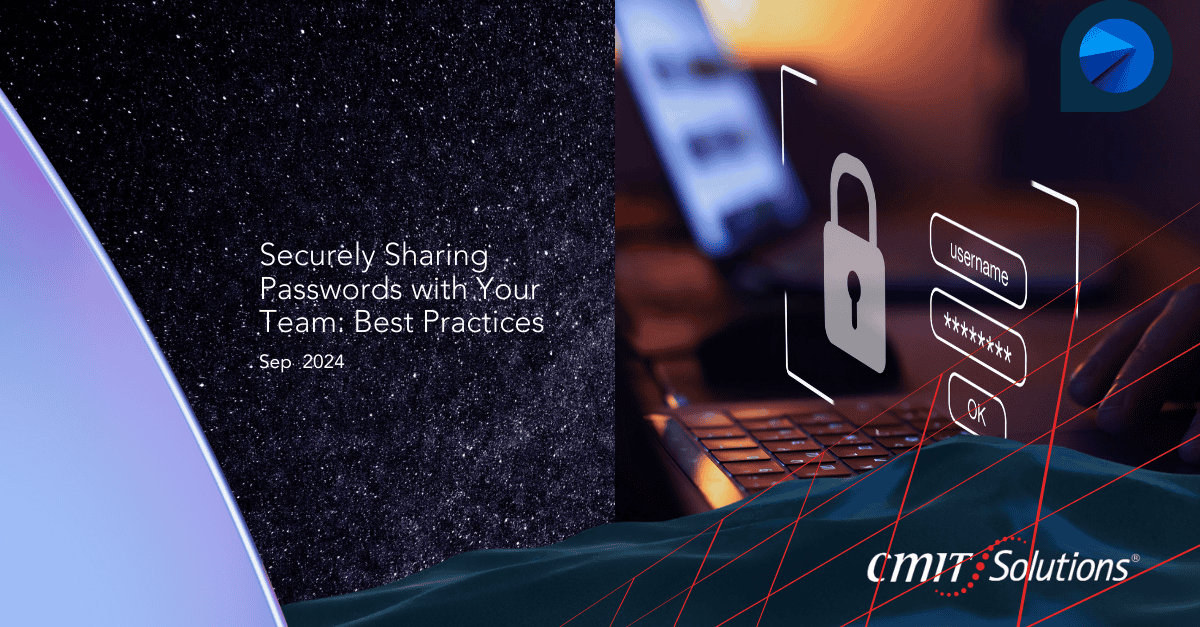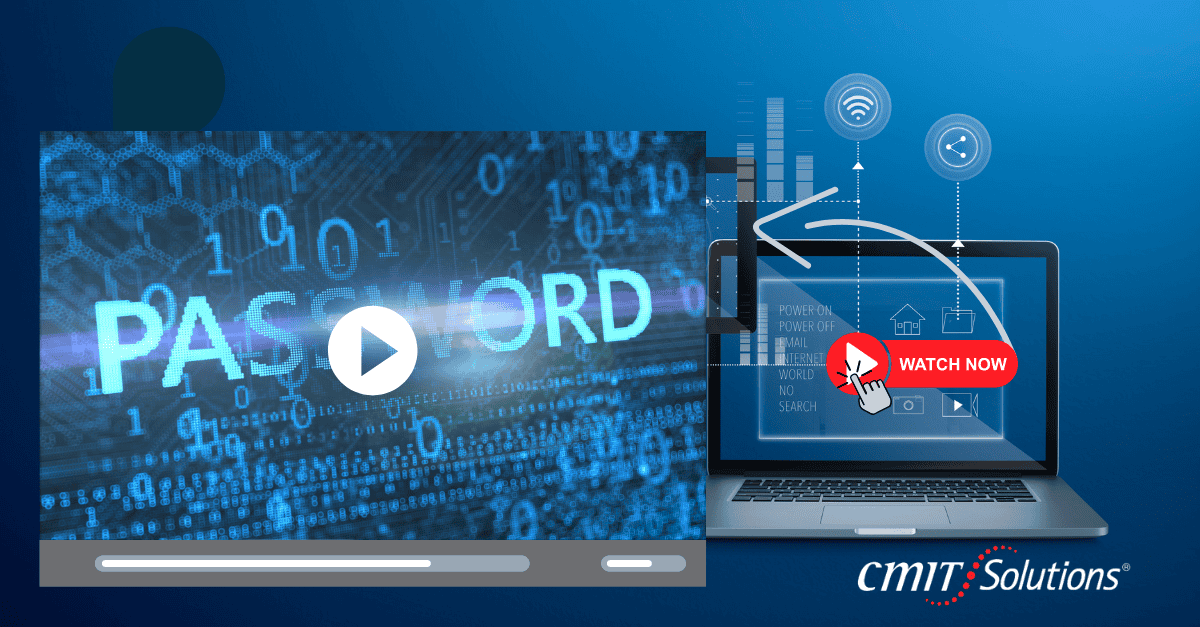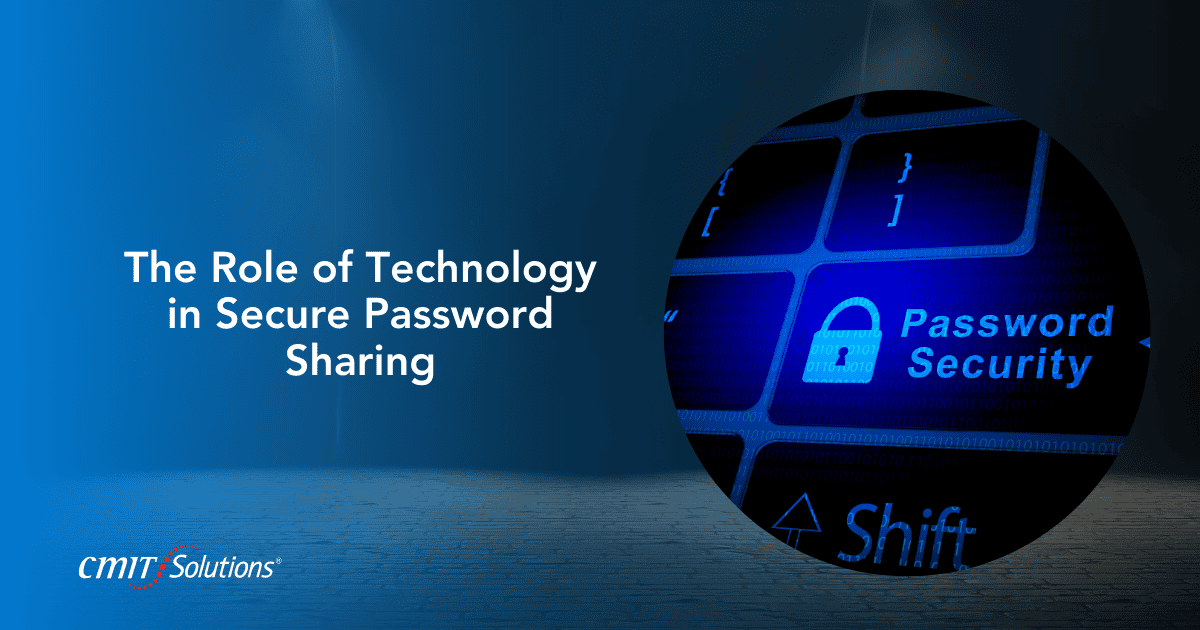In today’s interconnected business environment, sharing passwords among team members is often necessary for smooth operations and effective collaboration. However, insecure password sharing can expose your business to various cyber threats, including unauthorized access, data breaches, and identity theft. This makes it critical to implement best practices for securely sharing passwords to protect your business and maintain system integrity.
At CMIT Solutions of Charleston, we understand the importance of password security. We help businesses manage and share passwords securely, ensuring they are protected from potential cyber risks. In this blog, we will walk through the best practices for securely sharing passwords with your team, minimizing security risks, and safeguarding sensitive information.
The Risks of Insecure Password Sharing
Insecure password sharing methods, such as email, messaging apps, or sticky notes, can easily be intercepted by cybercriminals, leading to unauthorized access and potential financial loss. Additionally, improper password sharing can result in poor password hygiene, such as password reuse or sharing credentials with unauthorized individuals.
Understanding these risks is the first step in preventing data breaches. At CMIT Charleston, we help businesses mitigate these risks by implementing secure password management solutions. Learn more about how you can maximize data protection in your organization and prevent data breaches.
Best Practices for Securely Sharing Passwords
1. Use a Password Manager
A password manager is one of the most effective tools for securely sharing passwords with your team. It encrypts your passwords and allows you to share them with authorized team members without revealing the actual password. With a password manager, you can generate strong, unique passwords for every account and store them securely. This prevents passwords from being exposed during sharing and reduces the risk of phishing attacks.
At CMIT Charleston, we offer password management solutions that help you securely manage and share passwords with your team.
2. Implement Role-Based Access Control (RBAC)
Not every employee needs access to every password. By implementing Role-Based Access Control (RBAC), you can restrict password access based on an employee’s role within the organization. This limits exposure and ensures team members only access the passwords necessary for their tasks.
For example, your marketing team may only need access to social media accounts, while your finance team requires access to financial systems. Limiting access minimizes potential risks from unauthorized users. Learn how we can help you enhance security with RBAC and boost your overall IT security at CMIT Charleston.
3. Use Multi-Factor Authentication (MFA)
Even the strongest passwords can be compromised. Implementing Multi-Factor Authentication (MFA) provides an additional layer of security by requiring multiple forms of verification before gaining access to an account. This can include entering a password and a code sent to a mobile device or biometric verification.
MFA makes it much harder for cybercriminals to gain access, even if they obtain a password. Explore our MFA solutions to strengthen your security posture.
4. Educate Your Team on Password Security
Proper training is key to ensuring secure password practices. Employees should be trained on how to create strong passwords, recognize phishing attempts, and avoid reusing passwords across multiple accounts. Additionally, team members should learn how to use password management tools effectively.
CMIT Charleston provides cybersecurity training programs that keep your team informed about password security best practices and evolving threats.
5. Regularly Update and Rotate Passwords
Regular password updates and rotations are essential for preventing unauthorized access. Passwords should be updated periodically, especially if there is a suspicion that they may have been compromised. Avoid reusing old passwords or creating passwords that are too similar to previous ones.
At CMIT Charleston, we help businesses establish policies for regular password updates and rotation to keep your systems secure. Additionally, consider implementing data backup and recovery solutions to safeguard sensitive information.
6. Monitor and Audit Password Access
Monitoring and auditing password access helps detect and respond to potential security threats. By keeping track of who has access to which passwords and when they were accessed, you can quickly identify suspicious activity and take appropriate action.
CMIT Charleston offers monitoring and auditing solutions to ensure you maintain control over your password security and overall IT infrastructure.
7. Establish a Clear Password Policy
Creating a comprehensive password policy is crucial for ensuring consistent password security practices across your organization. This policy should include guidelines on password complexity, sharing procedures, reporting lost or compromised passwords, and password rotation protocols.
At CMIT Charleston, we can help you develop a password policy that aligns with your business’s security needs.
The Role of Technology in Secure Password Sharing
In addition to best practices, technology plays a critical role in securing your password-sharing processes. By leveraging the right tools, you can automate and enforce security measures, reducing the risk of human error.
Password Management Tools
Password management tools simplify the process of creating, storing, and sharing passwords securely. These tools provide password generation, secure storage, access control, and audit logs to ensure your team follows best practices.
Encryption
Encryption ensures that even if a password is intercepted, it cannot be read or used by unauthorized individuals. All passwords shared should be encrypted to prevent unauthorized access.
Automated Monitoring and Alerts
Automated monitoring and alert systems notify you of suspicious activity, such as unauthorized access or unusual login attempts, enabling you to respond quickly to potential threats.
At CMIT Charleston, we offer a range of technology solutions that enhance your password security and protect your business from cyber threats.
Conclusion: Secure Your Business with Best Practices for Password Sharing
As cyber threats continue to evolve, securely sharing passwords with your team is more important than ever. By implementing best practices such as using a password manager, enforcing RBAC, enabling MFA, and educating your team, you can significantly reduce the risk of unauthorized access and protect your business’s sensitive information.
At CMIT Solutions of Charleston, we are committed to helping businesses implement effective password security measures. Whether you need help developing a password policy, setting up password managers, or providing cybersecurity training to your team, we have the expertise and solutions to meet your needs. Learn more about how managed IT services enhance security and take the first step toward strengthening your password security today.
For additional insights, check out our guide to data protection and how to secure your business from cyber threats.







